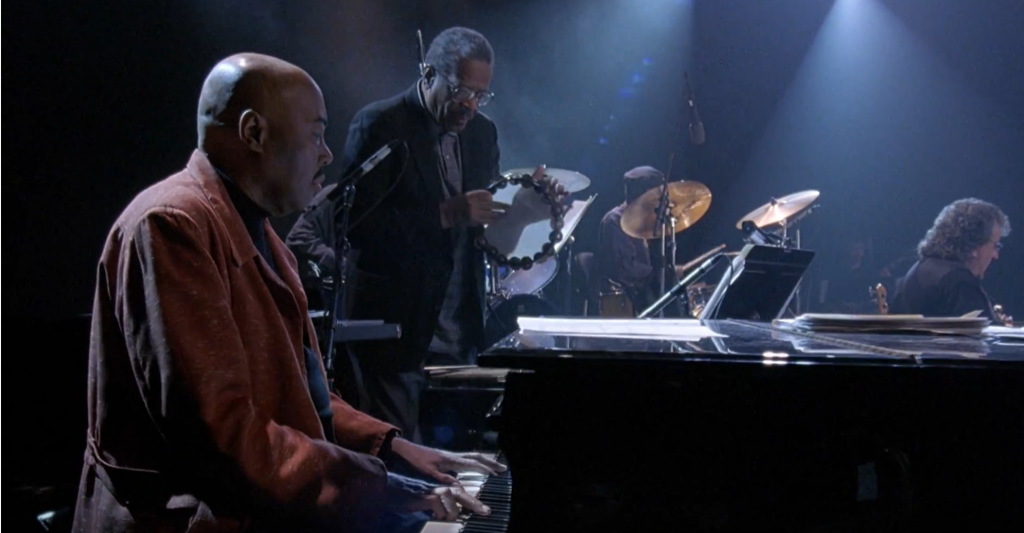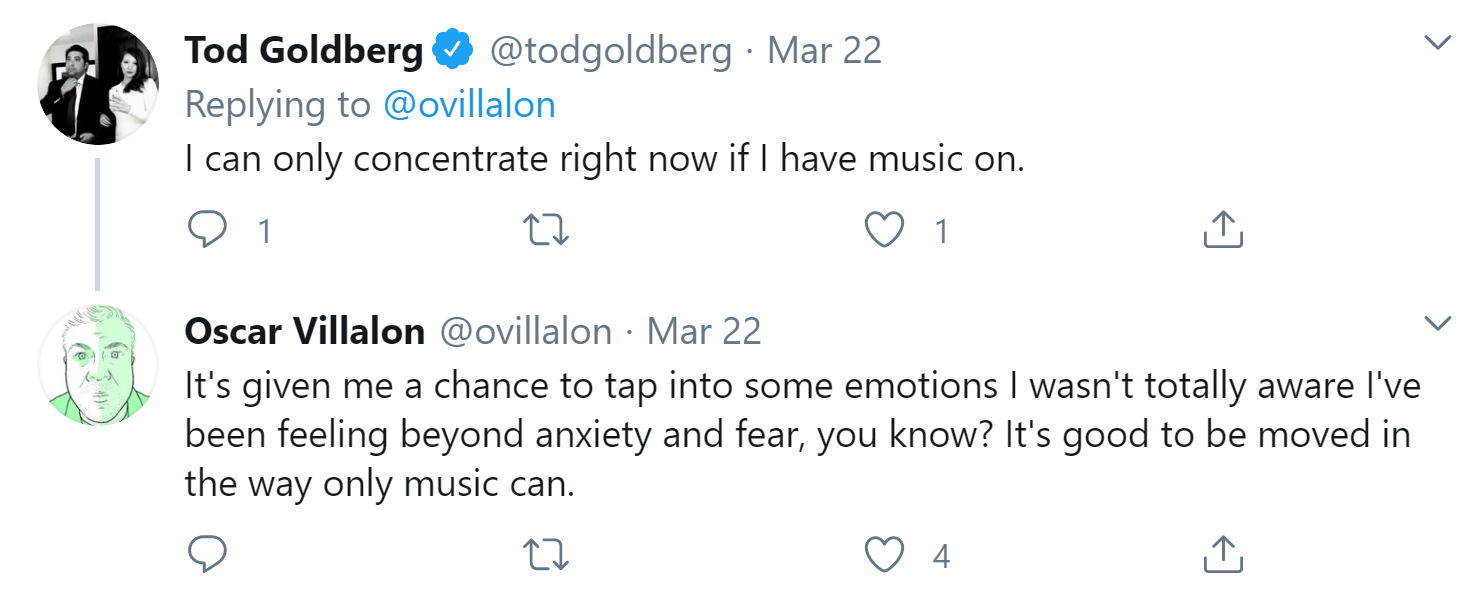The Funk Brothers Lifted Me From My Funk

Twitter is my compulsion during these coronavirus days. I’m a habitual scroller, madly clicking support on all posts about the appalling ineptitude and negligence of Trump, his shameful lies to cover his inaction and shameless self-congratulation for imaginary accomplishments. I retweet in support of authors whose celebrations and tours for their new books have been cancelled. I watch the cute animal and baby videos to pause and breathe and forget for a moment that our lives are in limbo as we wait for the curve to flatten.
This tweet from writer Myriam Gurba sums it up.

Some of us are better situated than others in terms of the impact of the shutdown, but all of us are susceptible to moments of despondency. Recently, after several sleepless nights and rather trying days, after I’d read all I could read from my stack of books, I poked around Netflix and Hulu in search of something else to distract or soothe or zombify me. It’s hard to know what you’re in the mood for when your needle is stuck at the bottom of the mood scale.
My cursor kept pausing at the documentaries because thrillers, fantasy, romance, comedy, or heavy drama were not going to get it done. What I didn’t realize was that what I really wanted and needed was music. I clicked on Standing in the Shadow of Motown.
I’d always meant to watch this story of the Funk Brothers, the studio musicians who created the Motown sound, but never got around to it. An inexcusable omission, given that I’d grown up on Motown. When we were kids, my sisters and cousins and I would pretend to be Martha and the Vandellas, the Supremes, the Temptations. We were all the groups. We were all the songs.
So it was the music of the Funk Brothers that lifted me out of my funk. I was bopping in my chair and despite my face droopy with fatigue, I could feel myself smiling, the Funk Brothers as antidote for my blues.
With the music came story. Of how these musicians came together in Studio A at Hitsville, USA, many having left homes in the South to work in the Detroit auto industry. How they didn’t last long in the factory, because music pulled them off the line. How they went unrecognized for years as studio musicians, while the vocalists for whom they created distinctive beats earned applause and sometimes fame and fortune on tour. How they were left behind when the Motown label moved to Los Angeles in 1972.
As their story and the story of the hits they created unfolded, memories of my childhood and adolescence echoed against the soundtrack. Like this:
“Do You Love Me” by The Contours came out in 1962. (A few years later it was covered by the Dave Clark Five. Raise your hand if you remember them.) It was the year I was voted president of my fourth-grade class, the pinnacle of my academic extracurricular achievement. It was also the year of the Cuban Missile Crisis, when I watched my mother stack tin cans of spam, Vienna sausage, and Boston baked beans for the coming nuclear catastrophe.
“Heat Wave” by Martha and the Vandellas came out in 1963, the year I was in fifth grade, the year JKF was assassinated. Teachers cried at their desks and we students cried at ours until we were all sent home early where we cried with our families in front of the TV.
“My Girl” by the Temptations came out in 1964. I was editor of our sixth-grade newspaper that never covered the War on Poverty or Bloody Sunday.
“Shotgun” by Jr. Walker and the All Stars came out in 1965, the year I entered junior high, when the official tenure of my ugly years began. It was also the year of the Watts Riots. Perspective.
“Ain’t Too Proud to Beg” by the Temptations came out in 1966, the year Reagan was elected governor of California. I remember thinking it weird that an actor would be our governor. Also weird: I went to my first school dance in eighth grade. Not weird: It was my last ever school dance.
“Reach Out” by the Four Tops came out in 1967, the year of the summer of love. I was in ninth grade, old enough to see Valley of the Dolls. Did that also make me old enough to watch a South Vietnamese policeman execute a Viet Cong officer on the evening news?
“I Heard it Through the Grapevine” by Marvin Gaye came out in 1968, the year MLK and RFK were assassinated. I entered tenth grade that fall. Nixon was elected president. Sex-Ed was introduced into our curriculum.
“Cloud Nine” by the Temptations came out in 1969. Astronauts landed on the moon, the Manson gang murdered, and thousands tripped out at Woodstock. Meanwhile the U.S was secretly bombing Cambodia. I was in eleventh grade thinking that I should be thinking about college but without a clue as to how to get beyond the thinking.
“Ball of Confusion” by the Temptations came out in 1970. The Beatles broke up, the Ford Pinto was introduced, the EPA was established, the National Guard opened fire on students at Kent State protesting the U.S. bombings in Cambodia. In the spring of my junior year, my English class took a weekend trip to L.A. to see the Huntington, the Griffith Observatory, the La Brea Tar Pits, and other sights. It was my first overnight trip out of National City.
“What’s Going On” by Marvin Gaye came out in 1971, a year of massive marches against the Vietnam War. Jim Morrison of The Doors died in a bathtub in Paris. Eighteen-year-olds were given the right to vote. I graduated high school that year. Our senior song was “We’ve Only Just Begun” by the Carpenters.
How time passes. Suddenly, I’m 66 and a grandmother, the demographic that the Texas lieutenant governor thinks should sacrifice itself to the coronavirus to save the economy, a pitch that generated the fun hashtags #YouFirstDanPatrick and #DanPatricksGrandparentGenocide.
Since we’re back to Twitter, I’ll end with this tweet exchange between writer Tod Goldberg and Oscar Villalon, Managing Editor of Zyzzyva magazine, which expresses what the Funk Brothers music did for me when I was low. It took me back to a turbulent era that was also a time of action and hope. Music connected and lifted us then as it does now.
